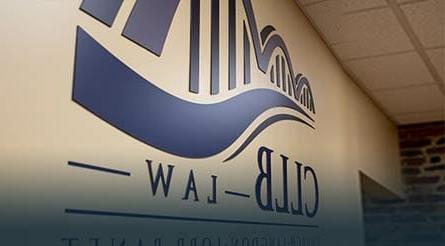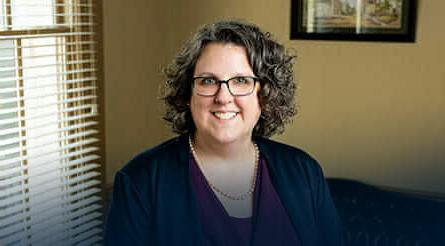High-Asset Divorce Lawyer
Dividing property in a divorce is always stressful, but when the divorce involves high assets, the case can become hotly contested and extremely complicated. Because there is so much at stake, there are likely to be differences of opinion on who gets the family and vacation homes, other real estate, investments, stocks, businesses, and retirement accounts. Sometimes dividing property can lower the value of the asset, and tax issues caused by sales of assets can further complicate the situation. Indiana property division laws are complicated, and since both parties have a lot to lose, they tend to dig in and fight to receive a bigger piece of the pie.
Indiana has an equitable distribution property division system, which means that assets and property acquired in the marriage should be divided in a fair and equitable, but not necessarily equal, manner. What constitutes “fair and equitable” is often debatable, and if you are involved in a high-asset divorce and have assets you are concerned about keeping, there is too much at stake to try to handle this on your own.
Fortunately for you, our experienced New Albany divorce attorneys understand everything about the complicated Indiana property division laws. Therefore, they know exactly how to deal with high-asset divorce and how to guide you through the equitable distribution of property, whilst always protecting your interests and keeping you from making costly mistakes that can impact your future.
Call us today to get started and see what Church Langdon Lopp & Banet LLC can do to help.
Why Choose Our High-Asset Divorce Attorney
There are many divorce lawyers, but in high-asset situations it is especially important for you to find one you can trust and who also has the resources and experience to get the results you need. Here are some reasons why we feel you should choose CLLB Law to represent you.
- We are experienced and know Indiana family law. Attorney Dana Eberle leads the team as a trusted family law lawyer. She advocates aggressively on her clients’ behalf and works toward legal solutions that offer the best outcomes possible for clients and their children.
- We are recognized in and give back to the community. In addition to being admitted to the Bar, Attorney Eberle is a former board member of The Center for Women and Families, and current Chair of The Center for Women and Families’ Southern Indiana Partnership Council
- We get results that are appreciated by our clients, and you can read Clients’ Testimonials to prove it.
- We are compassionate and know what you are going through. Having gone through her own divorce, Dana is well aware of the emotional ups and downs involved, and works to help you feel at ease and make the process as pain-free as possible.
How Our High-Asset Divorce Lawyers Work for You
When dealing with dividing complicated assets, it is important to start gathering, documenting, and preserving financial information as soon as possible, so you know what you are dealing with and can prevent valuable assets from disappearing. When you retain CLLB Law, our legal team will start working for you immediately. We will:
- Meet with you to discuss and analyze your individual marital and property situation, identify and value significant marital property, and determine what is most important for you to keep, in view of your future needs and goals post-divorce
- Explain Indiana divorce laws, how property is divided, and how the courts operate, pertaining to your individual situation
- Help you prepare necessary financial information about your income, expenses, assets, and debts before the divorce proceeding
- Hire financial experts—such as appraisers, forensic accountants, or actuaries if necessary — to properly evaluate the worth of property and conduct research to discover if a spouse is hiding or trying to devalue assets.
When you have CLLB Law on your side, we will handle all the financial and legal details and necessary investigations so you can focus on rebuilding your life.
High-Asset Divorce Attorney Explains Indiana Equitable Division
Indiana has a different system for dividing property than most other equitable distribution states. Those states allow divorcing spouses to keep what they consider to be “separate property” – that is, property acquired before the marriage or gifts and inheritances received during the marriage. Under those circumstances, only property considered to be “marital property” and acquired during the marriage is divided.
However, in Indiana, all assets owned by either spouse, individually or together, are initially considered to be marital property and subject to division in the divorce. Indiana law (Ind. Code § 31-15-7-4) requires dividing all property that the spouses own, including property:
1) owned by either spouse before the marriage
(2) acquired by either spouse during the marriage and before final separation
(3) acquired by the spouses’ joint efforts.
This means that in Indiana, the only property not subject to distribution in divorce is property either spouse individually acquired on their own after they filed for divorce or legal separation. Still, judges often do give consideration to whether the property was acquired before marriage or was received during the marriage as a gift or inheritance when determining who will get what.
Under Indiana Code § 31-15-7-5, the court presumes that an equal division of the marital pot is “just and reasonable,” so most spouses should wind up with about half of everything at the time of divorce. However, there are factors that may result in the allocation of an asset to one spouse or the other, especially if your attorney can show evidence that an equal division wouldn’t be fair. These factors may include:
- Each spouse’s contribution to the marriage through both income and non-income-producing efforts
- If the asset was acquired before the marriage or through inheritance or gift (this may be considered despite Indiana laws to the contrary)
- The economic circumstances of each spouse after division of assets and debts, especially considering whether the marital residence is awarded to the spouse with physical custody of the children
- Actions of either spouse that depleted or disposed of marital assets, such as by compulsive gambling
- Each spouse’s earning capacity after the proposed distribution of property and assets.
Because these factors matter, careful investigations, fair assessments of asset value, and skillful legal arguments from your attorney can make a difference in what assets you will receive. Based on your individual situation, our CLLB Law high-asset divorce attorney will gather evidence and present arguments for or against equal distribution of assets.
Attorney for High-Asset Divorce Helps Maintain Property Value
Our CLLB Law divorce lawyers know that it is important to value property properly and to consider what will happen to the value if it is divided or sold during the divorce process. For example, professional practices and family-owned businesses may rely on one spouse’s involvement or goodwill, and are likely to lose value if divided or sold, and some transactions will result in high tax debt.
Other common assets that can be at issue in high-asset divorces include:
- Retirement funds, 401(k) plans, pensions and benefits, and financial assets such as IRAs, stocks, stock options and bonds
- Local, interstate, and international bank accounts and offshore and overseas assets
- Family and vacation homes and investment properties
- Collectibles such as antique cars, jewelry, or art
- Compensation awards from workers’ compensation, personal injury or medical malpractice cases
- Cars, boats, motorcycles, and recreational vehicles.
Our attorneys will conduct investigations to find all assets, including those which may be deliberately hidden. When needed, we will use skilled financial analysts and valuation specialists such as forensic accountants who can assist in tracing investments, uncovering hidden assets and finding undisclosed asset transfers.
High-Asset Divorce Attorney Answers Frequently Asked Questions
When a divorce involves substantial assets, it is natural to have questions and concerns. Here are some answers to questions our clients frequently ask when facing a high-asset divorce:
What if I had a prenuptial agreement my spouse won’t adhere to?
A prenuptial agreement is a contract written to determine how funds will be disbursed in the event of a divorce, and they are subject to breach-of-contract enforcement. Our lawyers will review your agreement to make sure it was done correctly and can be enforced, and we will advocate on your behalf to ensure your spouse adheres to legally made provisions.
How do judges divide property fairly?
Judges often make tradeoffs to divide property fairly. For example, one spouse may get the family home in return for the other spouse’s getting the vacation home and recreational vehicle.
What if just one spouse is running a professional practice or business?
If a business is being run by and depends on just one spouse, it may be awarded to that spouse, and the other spouse would then be awarded another asset or property to satisfy equitable distribution.
How are retirement accounts divided?
Retirement plans are complicated and may require expert help to figure out what the plan is worth and to prepare a special order known as a qualified domestic relations order (QDRO). Sometimes, since some employment-related accounts are not yet eligible for payout as of the valuation date, a percentage of benefits can be set for payout to one spouse later.
In high-asset divorces, it is common for questions to pop up continuously. Rest assured that our CLLB Law legal team will be there for you to answer your questions and deal with issues as they arise.
Get Help from Our High-Asset Divorce Attorneys
High-asset divorces are extremely challenging, and they require skilled family law attorneys specializing in divorce to analyze each situation and develop strategies for a positive outcome.
Luckily for you, at Church Langdon Lopp & Banet LLC, we know that the steps you take now will affect the rest of your life, so our Jeffersonville divorce attorneys and Clarksville divorce lawyers will do everything possible to meet these challenges whilst protecting your assets and your interests in this difficult period.
You can also trust our divorce attorneys in Corydon to do this for you. They’ll find and identify marital assets subject to division for you, use professionals to provide expert opinions on valuation and the effect of transferring ownership on your assets, and develop strategies for property division that will protect you and your children.
GET HELP NOW 812-725-8226
For skilled and knowledgeable representation regarding any divorce issues, call us today. Based in New Albany, Indiana, we proudly serve communities throughout Kentuckiana; Floyd County, IN; and Clark County, IN.





